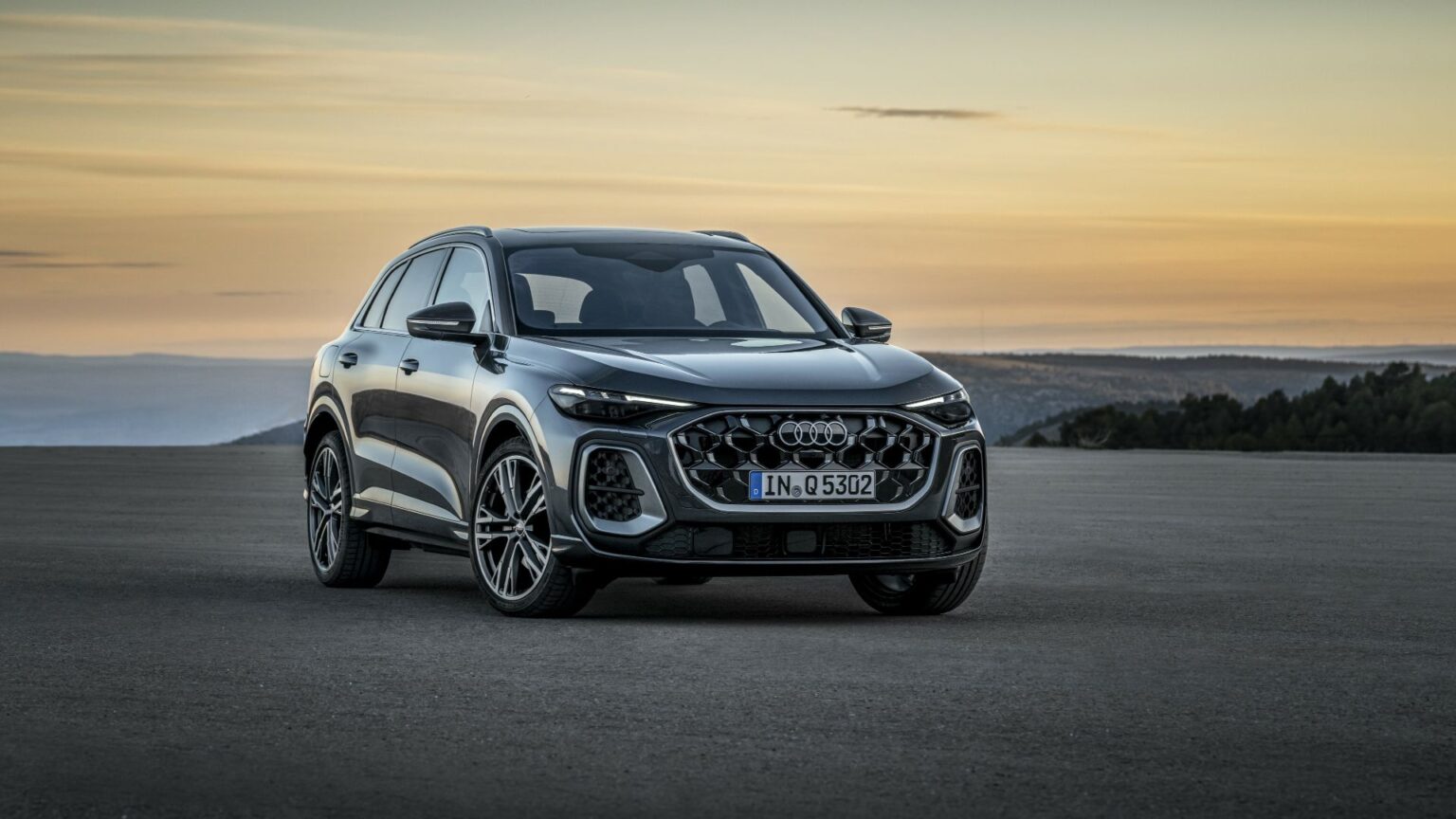Audi’s top-selling Q5 may no longer be eligible for sale here in the States, as Trump’s auto tariffs may make it too darn expensive. According to various sources, the Q5 is particularly affected by the tariffs, as the U.S.-spec model is made in Mexico and shipped across the border.
Because of its Mexican-based assembly, the Q5 is subjected to a whopping total of three tariffs: the initial 25 percent auto import tax, another 25 percent on shipments from Mexico, and another 2.5 percent from a failed negotiation on free-trade from Trump’s first term.
Key Takeaways
- The Audi Q5 may be unsellable in the States because tariffs will make it outrageously expensive
- The North American-spec Q5 is assembled in Mexico with parts and components all coming from Europe
The Total Import Tax On The Q5 Would Amount to 52.5 Percent
The Audi Q5 is one of the prime examples of how Trump’s tariffs can significantly affect the auto industry, particularly as foreign automakers invested millions of dollars in infrastructure globally to support vehicle sales in America. With a starting price in the neighborhood of $45,000, the cost could skyrocket to as high as $70,000 to start.
While the majority of the Q5’s components are made in Germany, Slovakia, or Hungary, among many other places, they’re all shipped to Audi’s Puebla plant in San José Chiapa. For instance, the Q5’s VW-sourced EA188 2.0-liter turbocharged inline-four is assembled in Hungary, the dual-clutch and ZF-sourced eight-speed automatic transmissions are made in Germany, and many other parts come from all over.
The San José Chiapa plant is the Ingolstadt-based automaker’s newest manufacturing facility, which opened up and commenced operations in 2016, producing mainly the Q5.
Since opening, the plant has contributed to over 20,000 direct and indirect jobs with more than 5,000 employees in-house. It’s also home to one of Audi’s major regional training centers.
In terms of Q5 production, the Puebla plant surpassed manufacturing over one million Q5s for the North American market in 2023. And according to Audi USA’s first quarterly sales reports, over a third of its sales for that period were Q5s.
Although several reports said Audi AG halted all U.S. shipments in response to the tariffs, TopSpeed exclusively learned from Audi of America that “no import stop is in place.”
However, Bloomberg reports that certain vehicles specifically affected by the high tariffs are on hold at the border, who spoke specifically with a Volkswagen of America spokesperson.
“The Q5 is a nice car, but if they’re making it there, they can’t sell it [in America],” Ambrose Conroy, CEO of automotive and supply chain consultancy firm, Seraph, told Fortune.
Like many other automakers, both foreign and domestic, Audi is in a frenzy about how to plan for the next four years as these tariffs will significantly affect profits. They’re also trying to figure out how to navigate the situation.
While some of Trump’s supporters believe the auto tariffs will force carmakers to relocate manufacturing and assembly back to the States, many analysts and even auto executives say it’s not that easy. Mainly because it can take up to three to four years for an automaker to build and set up a manufacturing facility, optimistically.
“Auto executives need long-term stability to run their businesses,” Matthias Schmidt, an industry analyst based in Germany, told Fortune. “Setting up car factories takes three to four years. With Trump, you don’t know how the market will be in three to four hours.”
TopSpeed’s Take
Audi and its situation with the Q5 and some of its other models is a prime example of how Trump’s brazen and short-sighted auto tariffs are affecting the auto industry. And this is only just the beginning.
Contributing Source: Bloomberg
Read the full article here


